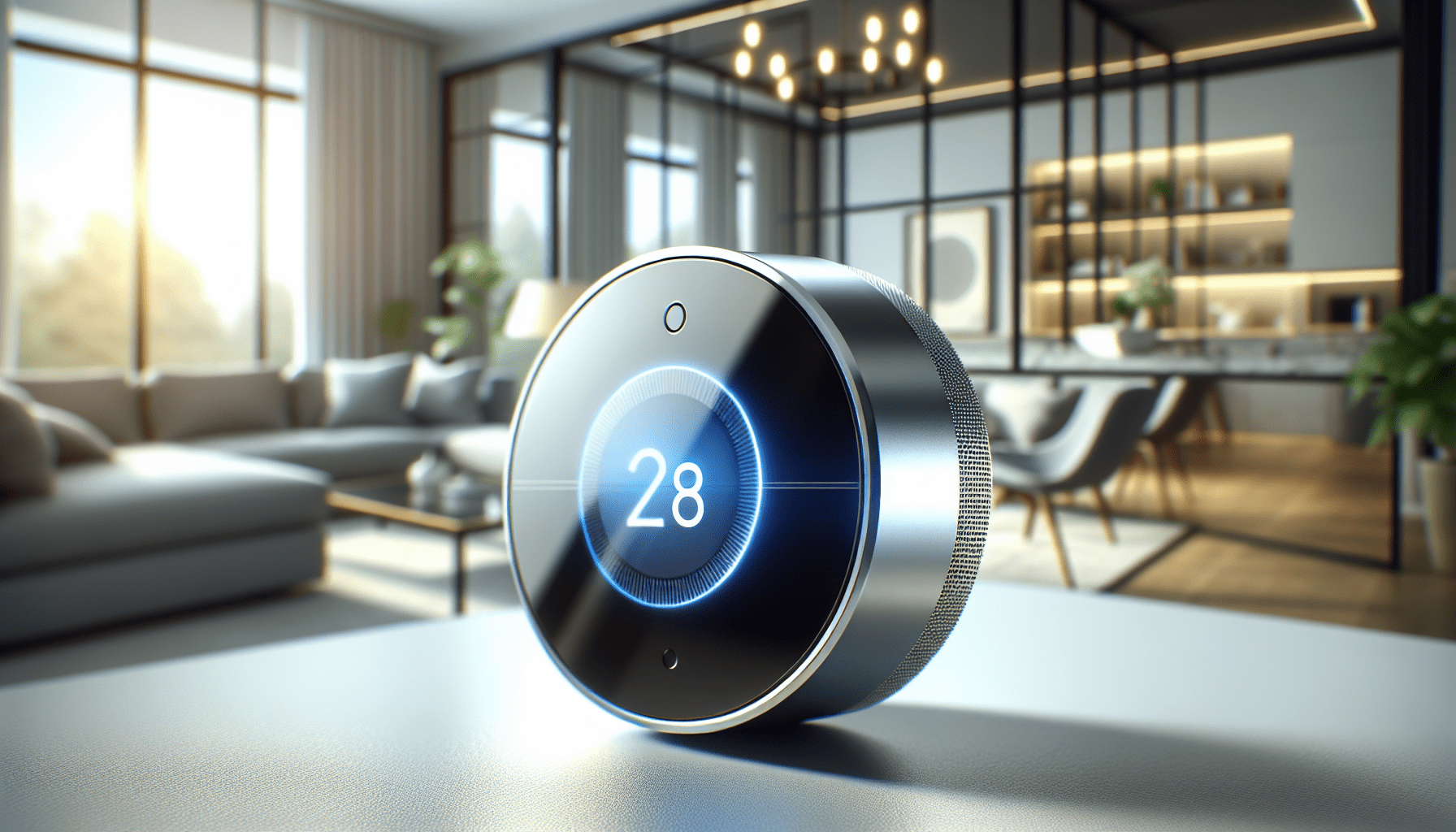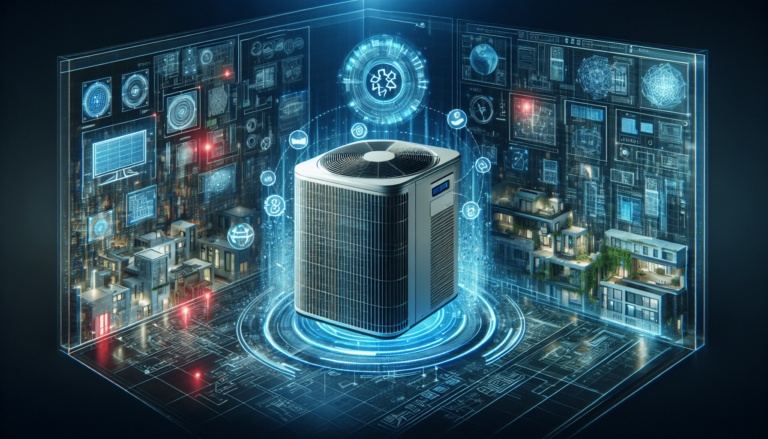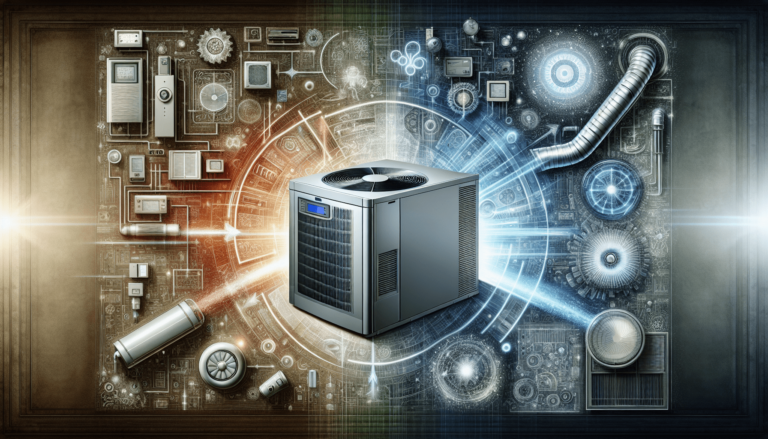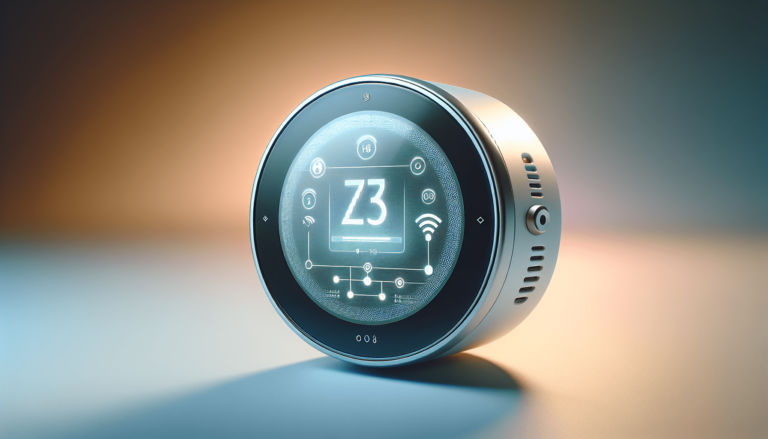

HVAC Services
Get Professional Repairs From The Area's Trusted HVAC Technicians. Ask About Our Services! We Offer Professional Heating & Cooling System Repairs And Guarantee Long-Lasting Results.
Got Question? Call us: (850) 678-2665Financing
Exploring The World Of Smart HVAC Sensors
Explore smart HVAC sensors revolutionizing home climate control. Discover their role in boosting efficiency, reducing costs, and promoting eco-friendly living today!

Have you ever wondered how technology continues to transform even the most mundane aspects of daily life, like how we control the temperature in our homes? The advancements in HVAC systems are shaking up the way we live, making our encounters with heating and air conditioning smart and intuitive. Let’s delve into the fascinating world of smart HVAC sensors and see exactly what they offer.

Understanding Smart HVAC Sensors
Smart HVAC sensors are not just gadgets; they are game-changers in climate control. These sensors gather data to improve HVAC system performance. They work by communicating with system components to adjust operations based on various inputs such as room occupancy, weather conditions, and air quality.
Core Functions of Smart HVAC Sensors
Smart HVAC sensors collect and analyze data continuously. They monitor indoor temperatures, humidity levels, and even air quality. By doing this, they can identify inefficiencies or areas needing adjustment to optimize the comfort of your environment.
The Importance of Smart Sensors in HVAC Systems
Smart sensors lead to increased energy efficiency, which is crucial in reducing utility costs. They make the system responsive, allowing it to adjust to precise conditions. This responsiveness minimizes waste and extends the life cycle of the equipment, thus saving you money in the long run.
Types of Smart HVAC Sensors
Various sensors perform different roles in an HVAC system. Understanding their specific functions aids in appreciating their contributions to comfort and efficiency.
Temperature Sensors
Temperature sensors track and regulate the heat levels in a space. They ensure consistent comfort by adjusting the system output to maintain desired temperatures.
Humidity Sensors
Humidity sensors check moisture levels in the air. They help maintain optimal humidity, preventing mold, and ensuring indoor air quality.
Motion Sensors
Motion sensors detect room occupancy. They reduce energy usage by adjusting the HVAC system according to the presence of people, helping conserve power when spaces are unoccupied.
Air Quality Sensors
These sensors assess air pollutants. They work to improve air circulation and filtration, ensuring healthier air quality within homes and businesses.
Pressure Sensors
Pressure sensors monitor the pressure difference between indoor and outdoor environments. They ensure the HVAC system runs efficiently by managing airflow and preventing overworking of the equipment.
How Smart Sensors Enhance HVAC Efficiency
Efficiency is a major advantage of smart HVAC sensors. They help reduce unnecessary energy consumption by adjusting heating and cooling outputs based on real-time data.
Energy Savings
Smart sensors make informed adjustments to conserve energy. They cut down energy bills significantly by blocking unnecessary heating or cooling, making them both a pocket and environment-friendly choice.
Reduced Maintenance Costs
Regular monitoring through sensors can pinpoint potential issues before they escalate into serious problems. By doing this, they help reduce unexpected repair costs, extending the lifespan of HVAC systems.
Smart HVAC Sensors and Home Automation
Integrating smart HVAC sensors with home automation systems puts control at your fingertips. You can manage settings remotely via smartphones or other devices, ensuring maximum comfort whenever you arrive home.
Benefits of Integration
With integration, you enjoy increased convenience. Alter HVAC settings remotely for comfort and energy savings. This seamless control promotes both comfort and efficiency.
User-Friendly Interfaces
Most systems offer intuitive interfaces, making it easy to manage your HVAC system. Whether through an app or a control panel, operating your system becomes hassle-free, even fun.

Environmental Impact of Smart HVAC Sensors
Harnessing the power of smart HVAC sensors contributes to environmental sustainability. By optimizing energy use, they lower carbon footprints.
Sustainable Energy Consumption
Smart sensors promote sustainable living by maximizing energy use. They adjust system settings according to need, preventing excess usage, which supports environmental conservation efforts.
Green Technology
As part of green technology, smart HVAC sensors aim to minimize waste and wear of resources. Opting for such technology aligns with global initiatives to preserve our planet.
Challenges and Considerations
While smart HVAC sensors present numerous benefits, being aware of potential challenges helps in making informed decisions. Consider installation costs, technology compatibility, and privacy.
Installation Costs
Initial setup for smart sensors can be higher than traditional systems. Evaluate your budget and consider long-term savings from reduced energy bills.
Technology Compatibility
Ensure your HVAC system is compatible with smart sensor technology. Check with manufacturers or service providers like Tempacure Heating and Air Conditioning for guidance on compatibility and installation.
Privacy Concerns
Smart sensors collect data to function efficiently, raising privacy concerns. It is important to review privacy policies and understand how data is used.
Moving Forward with Smart HVAC Sensors
The intelligent use of technology in everyday applications, like HVAC systems, signifies progress. Embracing smart HVAC sensors can enhance your living experience by delivering comfort, cutting costs, and supporting sustainability.
Steps for Adopting Smart HVAC Sensors
-
Assess Your Needs: Identify your specific comfort needs, energy goals, and budget for smarter climate management.
-
Consult Experts: Reach out to professionals, like those at Tempacure Heating and Air Conditioning, to ensure your system is adaptable for smart sensors.
-
Plan Installation: Scheduling a proper installation with expert guidance helps in ensuring optimal performance.
Long-Term Benefits
By investing in smart sensors now, you save money over time through reduced energy costs and extended system life. The continuous improvement in living conditions enhances the quality of life while supporting environmental sustainability.
Adopting smart HVAC sensors is an investment that pays off in comfort, cost savings, and environmental stewardship. These devices promise to redefine how you experience indoor climates, making every home a haven of efficiency and ease.







